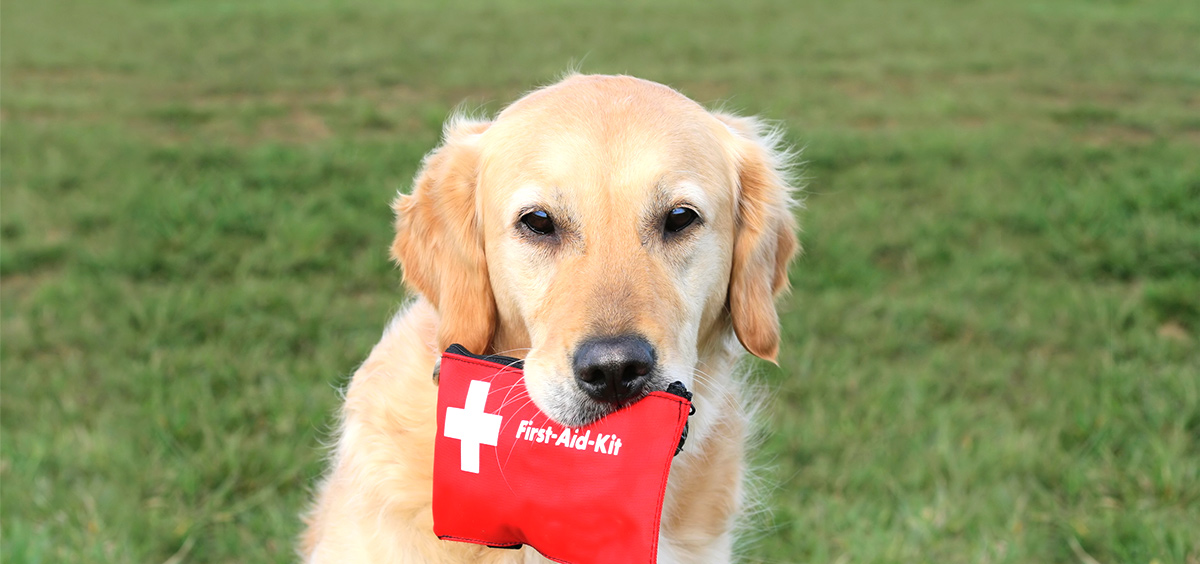Emergencies seldom give warning, but we can be ready for them. Most people have first-aid kits on hand for themselves and family members. But what about your pets? The experts at North Shore Animal League America recommend having a pet first-aid kit that’s right where you need it if an animal emergency occurs.
You can buy kits that are pre-assembled or assemble your own. Keep them in different locations so that you are prepared at all times, in all places. It’s wise to keep one kit at home, one in the car, and wherever else your pet spends time — the office, a relative’s or friend’s home, a vacation retreat, etc. If customizing your own, use a container that is sturdy, waterproof and easy to spot when you need to locate it in a hurry.

Here is what every basic pet first-aid kit should contain:
- Phone numbers and addresses: Veterinarian, Emergency Vet, Poison Control
- Basic pet first-aid book
- Photocopies of your pet’s paperwork: important medical records, vaccinations, etc.
- Medical gloves: to protect hands and prevent contamination
- Scissors: to cut gauze or the animal’s hair
- Bottled water
- A mild antibacterial soap: to clean skin and wounds
- Paper towels
- Gauze pads: for wounds
- Gauze rolls: for wounds and can also be used as a temporary muzzle
- Alcohol prep pads: to sterilize equipment – NOT for use on wounds
- Self-adhesive bandages: flexible bandage used to wrap and stabilize injuries (do not wrap too tightly)
- A large cloth towel: to wrap animal
- Hydrogen peroxide: to clean minor wounds
- Eyewash: such as contact lens solution or water in a squeeze bottle to gently but thoroughly flush out wounds and eyes
- Antibiotic ointment: for cuts and abrasions (never for eyes)
- Cotton applicator swabs
- Tweezers: for the removal of foreign objects from skin and paws; and for the proper removal of ticks
One important rule to observe: make sure to always read directions and warnings before applying any medications, either prescribed or over the counter, to your pet. If you have an emergency, you should always contact your veterinarian for further instruction.


